From Chile to Canada, women are at the forefront of the climate crisis, and are one of the most impacted groups by climate catastrophes. Along with other minorities such as Black, Indigenous and People of Colour, LGBTQ+ folks and low-income communities, women are often part of those demographics as well, exposing the intersectionality of climate impacts, gender inequality and social injustice.
These same women are showing the world that a planet centered on justice, resilience and care is not only possible but necessary. Here are 9 women shaping the climate conversation in the Americas region:
Anna Crawford
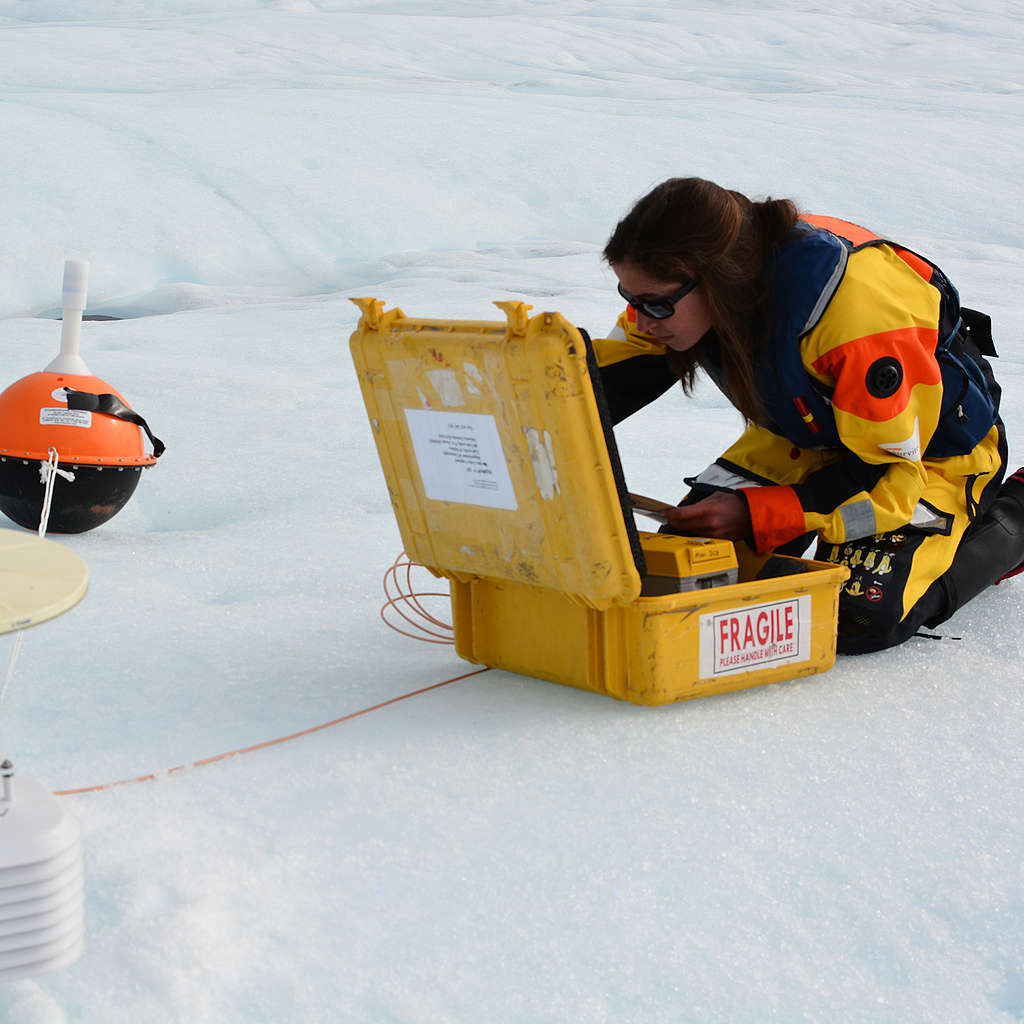
I am physically based in Scotland, though most of my engagement with Greenpeace has taken place in Canada. As a volunteer, I ran the KleerCut campaign in Thunder Bay, Ontario and supported a local group in Ottawa. I am now a member of the Board of Directors of Greenpeace Canada, and currently serve as the Board Chair. As a glaciologist, my "day job" consists of research on the deterioration of icebergs and retreating Antarctic glaciers.
The current and impending impacts of glacier loss have local and global consequences, including endangering water resources for millions of people and altering coastlines worldwide. Greenpeace has an important role to play in ensuring that society is making all efforts to mitigate climate change and address the inequalities that it will exaggerate.
We all have something – strengths, skills, perspectives, experiences – to contribute. We all have something to learn from each other too. I think our openness to new ideas and ways-of-thinking is key as we look to create and embrace change together.
Billie Lee
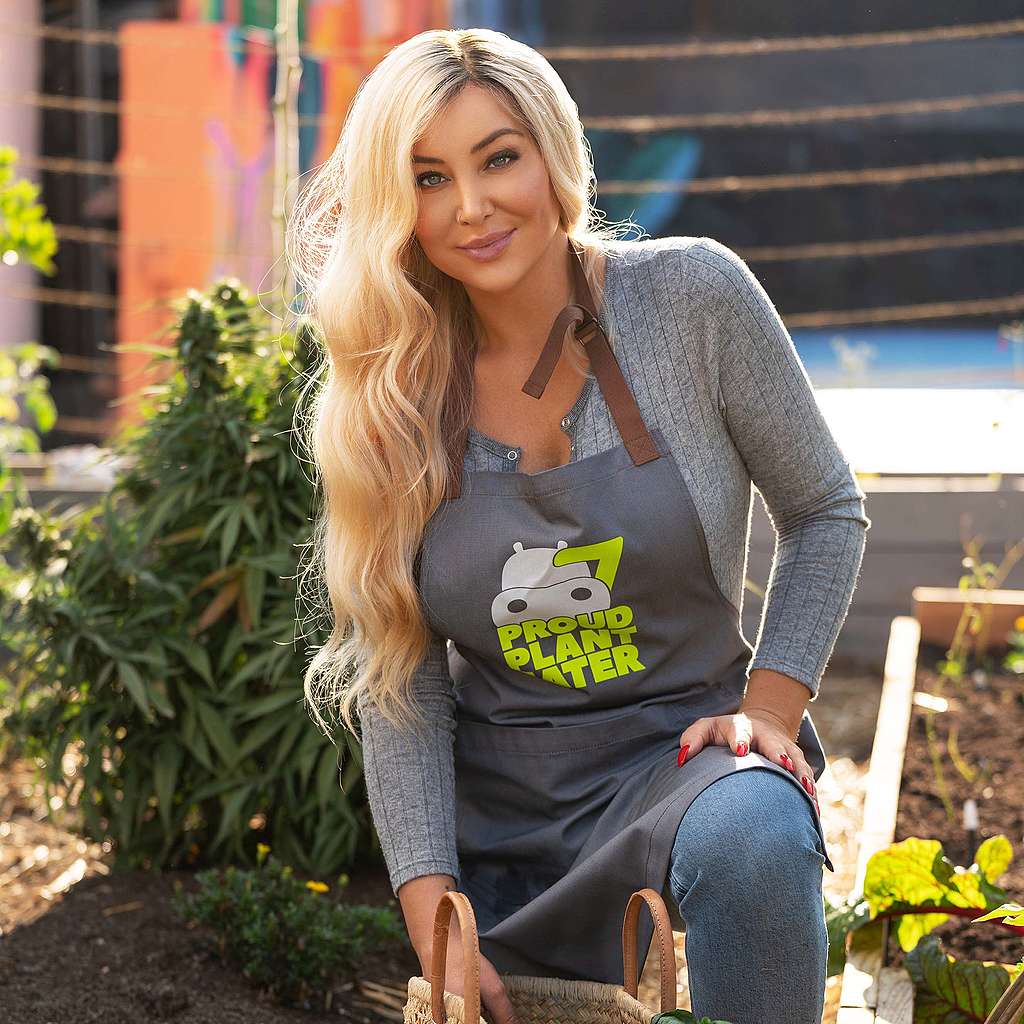
I'm Billie Lee and I'm from Indiana, US. I'm a TV writer, producer and also an activist for food sustainability and transgender rights. As a long-time vegan, creator and author of the popular blog She's So Vegan, I try to use my own lifestyle to educate and inspire others through the power of food.
I first gained notoriety on the hit Bravo series Vanderpump Rules, and now I am working on my first book, Why Are You So Sensitive?, which will be published by Andrew McMeel and released in 2023. In addition, I continue to work for equity-in the workplace, in housing and in food accessibility/sustainability and in entertainment.
I believe we are here to be of service for our planet and those most vulnerable to environmental dangers. As a trans activist I've noticed we are fighting the same enemy. Climate deniers and the politicians that support big oil are the same enemy we trans people face while fighting for our fundamental human rights.
My most memorable moment as an activist was protesting the big oil companies and for the new green deal, seeing all my trans/non-binary community on the front line fighting for our planet. With all the discrimination trans and non-binary people experience we still know there is no life with or without rights if there is no planet to call home.
Claudia Farinha
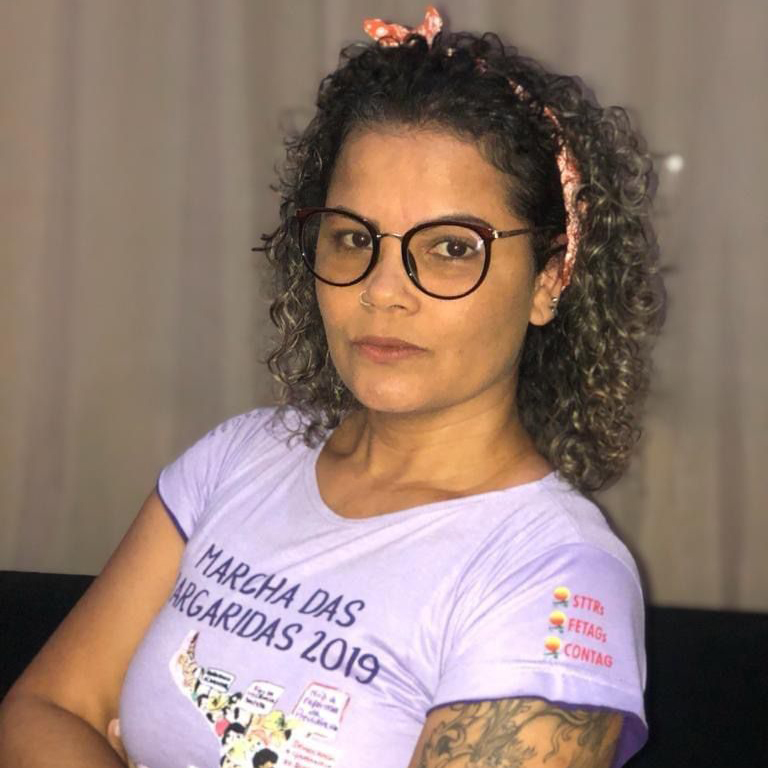
My name is Cláudia Farinha, I am a woman of the Land and of the Fight! I am a family farmer and I live with my family in a Land Reform Settlement in Brazil.
I am an educator, communicator, ecofeminist, lawyer and socio-environmental activist. I worked in the rural trade union movement for over two decades, which liberated the voice and strength of rural women the same way I forged myself in the struggle as farmer leader.
The rights of rural women and men are among the priorities in the fight for better living conditions. In 2020, I joined a course to prepare activists to make communication an instrument of women's organizing.
In 2021, via the ECOAR project (Meetings for Content on Anti-Deforestation in the Amazon and Cerrado), I've been in workshops to create socio-environmental content related to social media. Since then, I have integrated my environmental activism on social media and on the streets in the fight for a better world. It is not easy being a woman, an activist, a digital influencer and finding the best way to connect with people and raise awareness on climate issues. We know the gravity of what we are experiencing, but the Brazilian Congress, the mass media and large capitalist corporations ignore the urgency of the environmental agenda.
The biggest challenge is to deepen contact with people, so that together, we can denounce and highlight the calamity we are experiencing. The environmental, political, ethical and health crises require communication that shows the causes of these problems, for the collective construction of awareness about them, so we can undertake efforts to change this reality.
The only way is together. I don't see any other alternative. It is no use demanding the Congress, it is necessary to build a collective force to transform reality and save the planet. This election year is very important in Brazil. We need to unite and fight to occupy spaces of power and ensure we have voice and strength to have leaders who actively defend the environment and prioritize social justice, gender equality, the rights of women farmers, and the climate.
Jackie Zamora
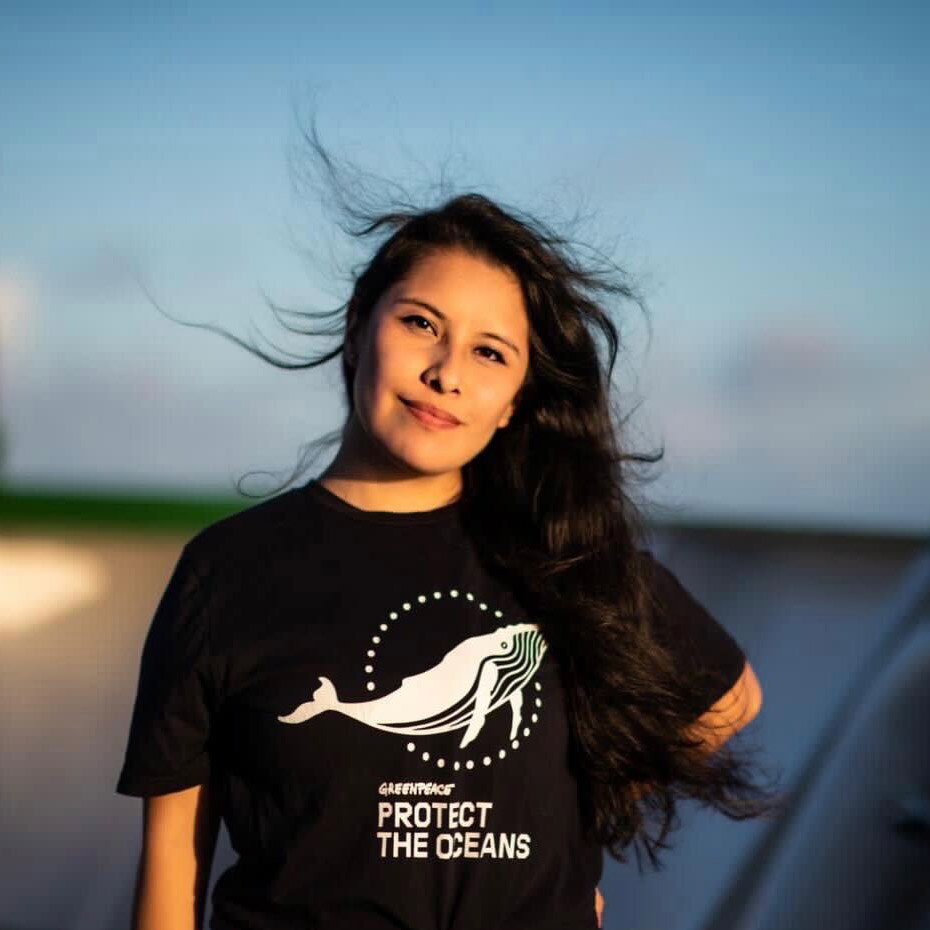
My name is Jackie Zamora from Mexico, for as long as I can remember I was taught to respect nature and when I learned from a very young age that our planet faced many threats, I wanted to somehow make a possitive difference.
In 2012 I joined Greenpeace Mexico and multitasked between being a College student and a volunteer coordinator. This was just the beginning of my environmental activist journey. 10 years later I've been in the Arctic, sailed in all 3 Greenpeace Ships and I'm currently the Engagement lead for the European Mobility Campaign.
I grew up in Latin America, where environmental activists and human rights defenders face intimidation, threats and violence. It's one of the most dangerous regions in the world to fight for climate justice and gender equality. Although these attacks affect all defenders, women activists are specifically targeted and face additional obstacles and risks like gender-specific threats or barriers to accessing decision-making spaces and platforms.
Many brave environmental and human rights activists like Berta Cáceres from Honduras and Marielle Franco from Brazil have lost their lives in these fights.
It's important to acknowledge the intersectionality that is inherent to how people experience the environment, to call for solutions that appreciate varied experiences. Environmental justice is this intersection of both social justice and environmentalism. As Berta Cáceres said "Let's build societies that are able to coexist in a way that is dignified, just and protective of life"
My most memorable moment in my activism journey was the first time I saw icebergs and penguin colonies in the Antarctic and a few minutes later I saw plastic bottles in the very same sea. Yes, there is a lot of plastic waste in the Antarctic. It was heartbreaking to see the reality our oceans are facing. Everyone's fate is bound to the fate of our planet and we have a shared responsibility in the mission to protect our only home.
Julialynne Walker
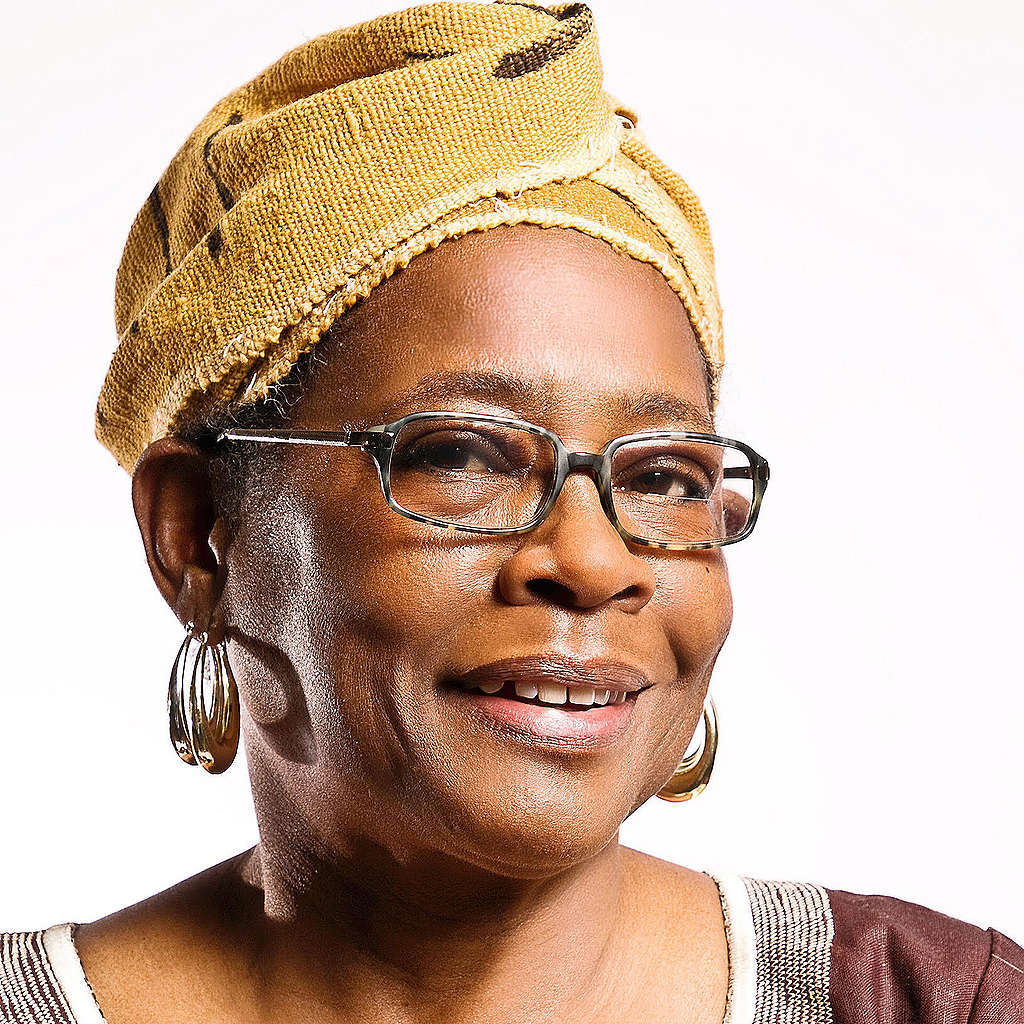
My name is Julialynne Walker and I'm a land steward. I like to put my hands in the earth. I started a garden at my mother's house, and then something at her church. In the process, I became reacquainted with the Columbus (Ohio, US) environment, in particular, the historic African-American section. There just was a devastation that I found astonishing due to a number of different changes. I wanted to be able to address that in some way, and that's how I got started with the Bronzeville growers market.
People were coming to me and saying: I like to garden, but I don't know how; this looks exciting but I live in a small place. I approached Ohio State University and asked about doing a class there. But then COVID hit, so it all got canceled. I next found a young person to show me how to use zoom. Then I got on my back porch, gathered plants and different things and did a 10 week free online introduction to agriculture class. Everybody was excited, people came on and off as they chose, I wasn't prescriptive.
I realized there were people that really wanted to grow food and that I was developing a sort of vertical model of integration with this work. I got funding to buy large plastic bins and we literally just dug holes in the bottoms, put about a third of leaves and small twigs and the soil. We gave seeds and some starter plants, so people could have one to three bins and they could place them in their yard, on the porch, it was flexible.
If each of us can take responsibility for the little piece that we have and do it in a way that makes sense, that's how to start creating change in the greater whole. I'm afraid of people who are not open to the truth. I'm just dumbfounded at some things happening in the United States. I do not understand how people don't see that their own interests are being sabotaged by this commitment to falsehood.
Every one of us has a responsibility to do something that ensures a future, because this is it, we got one planet. I don't know why this is so difficult to understand. There is no place else for us to go. If you're not for zero waste, how much waste are you for? After reduce, reuse, recycle, I'd add a fourth one: rethink.
Lana de Holanda
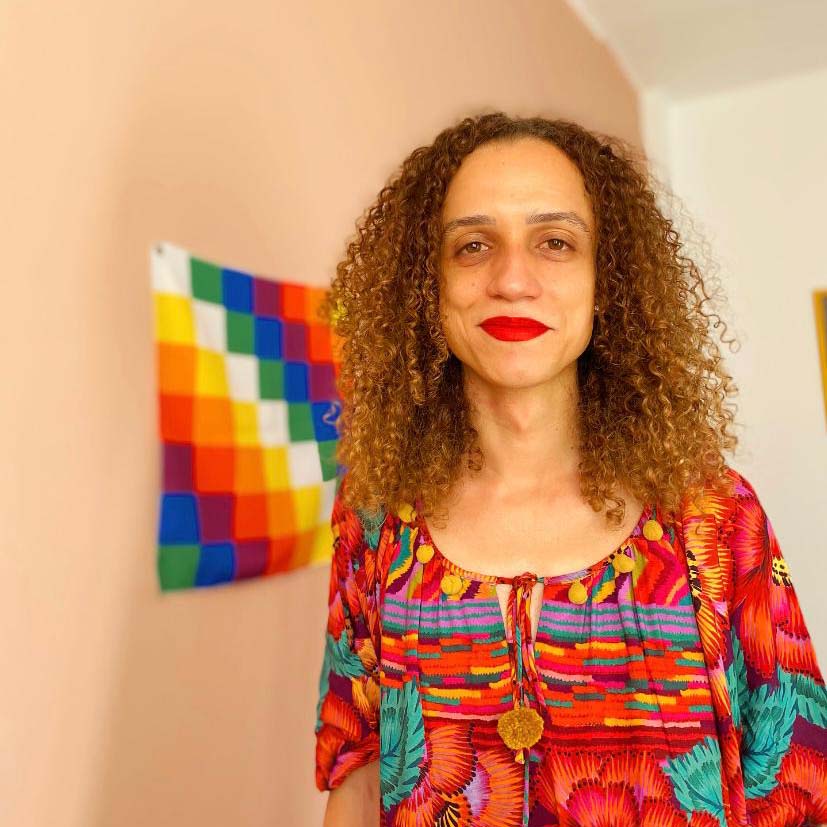
I am a trans woman (I also like the term "travesti", which is Latin), communicator, popular educator and poet, who lives in Rio de Janeiro, this land so marked by beauty and chaos, in Brazil. Being a trans person, in the country that kills the most LGBT people in the world, and in such a violent city, brings to me the urgency to write my texts, my poetry and produce content for social media. I think it is important to reflect on how violence occurs in different ways, including the lack of access to water, decent housing, green spaces in cities and several other factors that are also related to the environment and the social gap between people.
Brazilian trans people, for the most part, do not have the basics to survive. And we are all the time stating that we need not only to survive, but above all to live. We need to be seen as real citizens. And this fundamentally involves building a planet that is socially and environmentally just, where all people can live their lives with guaranteed rights and in harmony with ecosystems.
We need to understand that the human being is also nature, not something apart from it. Understanding the connections between nature and humanity, and that all humans must have their human rights guaranteed, is urgent.
Having participated in actions in Argentina, relating the debates on feminism, economics and environmentalism, marked me a lot. I believe that our fight needs to break borders and solidarity needs to be international. Whether in Rio de Janeiro or Vancouver, whether in Buenos Aires or Lisbon, our struggles are connected and the answers also need to come together.
Maria Paz Valenzuela
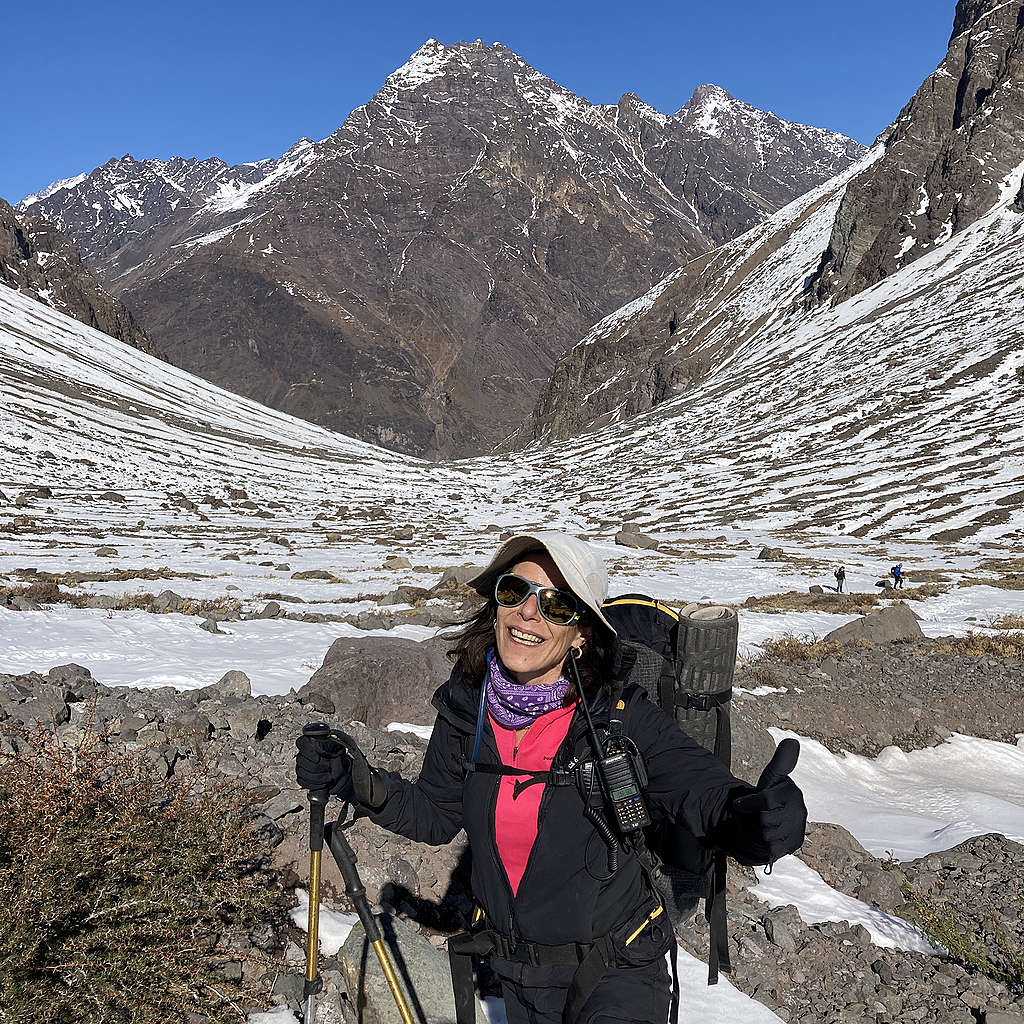
I am Maria Paz Valenzuela, a Chilean mountaineer. This is an activity that I have carried out since my adolescence in all continents of the world. I currently carry out mountain and trekking activities, directing groups of people interested in outdoor activities.
The Magmandinas expedition to Ojos del Salado was a totally different experience to any other expedition for me. The motivation and soul of this project is unique. The idea was initially conceived as a women's expedition, since its fundamental plan was to bring together women from Latin America and create a space for reflection and coexistence with the environment to finally deliver a powerful message about the importance of care for our land, for ourselves and the relationship that we establish with our surroundings, as well as to empower us as mountaineer women, moving our own limits and achieving our own goals.
The role of all human beings cannot be postponed when we talk about protecting the planet. This is not a gender issue, it transcends that. It is a personal and group responsibility to take care of our environment. Educate to protect, care for and love what surrounds us. Educate to reconnect and return to the purest essence as an individual, recover the ability to wonder at each natural event, open your eyes and see, see with your heart.
Samela Sateré Mawé
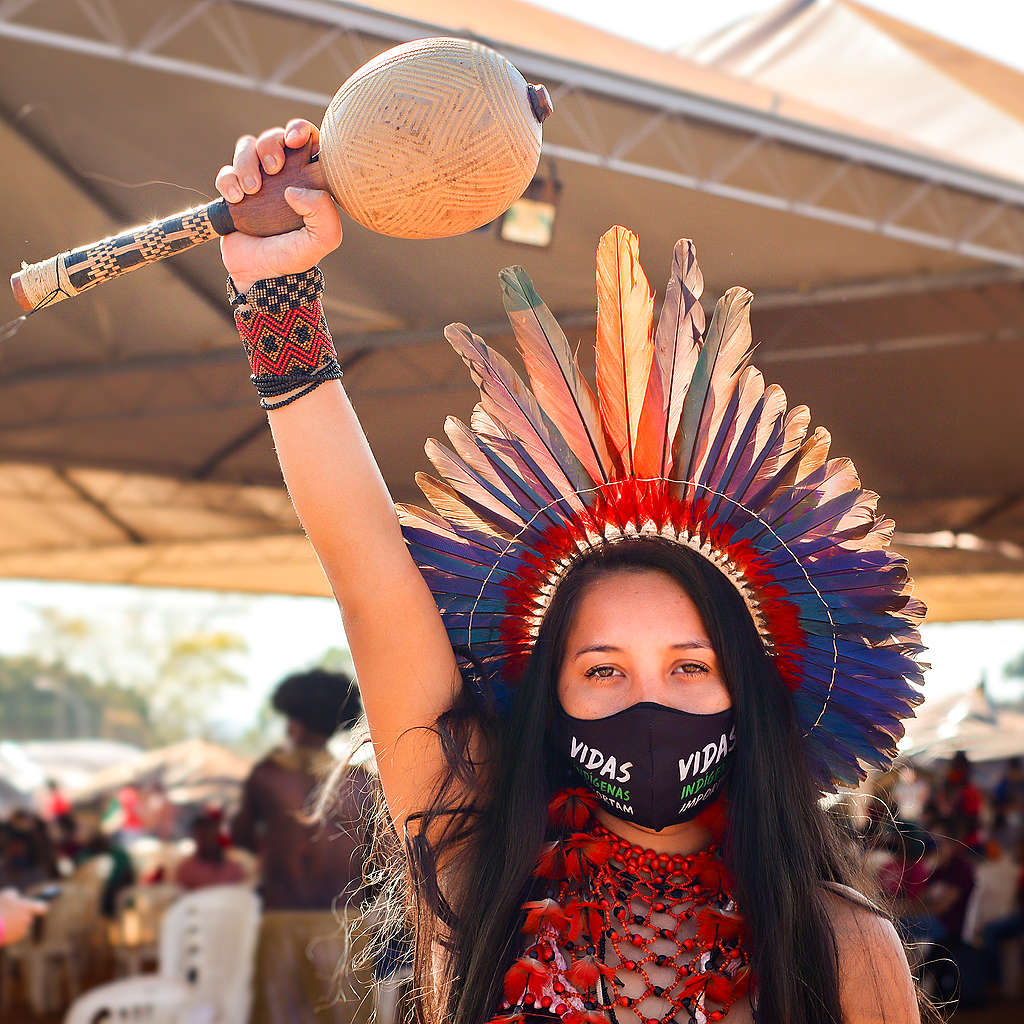
Indigenous woman from the Sateré Mawé People, I am a biology student at the University of the State of Amazonas, Brazil. Artisan, presenter, communicator and environmental activist, I work to simplify Indigenous issues online and as a defender of the environment.
When we Indigenous People are born, there is no moment when we decide to be activists, we are born activists, because we have always been fighting, for our culture, our language, identity and territory, and these struggles go hand in hand with the fight for the environment, since the protected Indigenous Lands are the ones with the most biodiversity. As a biology student, much of the environmental activism comes from combining Indigenous Peoples' fight for our lands with the fight for climate. And as women, our actions are often discredited, but in reality we are protagonists. People think that scientists are men, with glasses and a PhD, but women also do science and are more than ever in the daily fight for the protection of lands, along with all Indigenous Peoples.
I was able to participate in COP26, which was a historic milestone for me. It was a unique experience, being an Amazonian, an Indigenous woman and being on another continent telling people and other countries how their actions impact our environment. It felt unique to talk about how little time we have left and that the solution are Indigenous Peoples, the main defenders of the planet. In addition, the march for the climate, made by the youth at COP26, and the first march of Indigenous women in Brazil were unique sensations of belonging and action. It's hard work and sometimes we don't feel optimistic, but we have to keep going.






